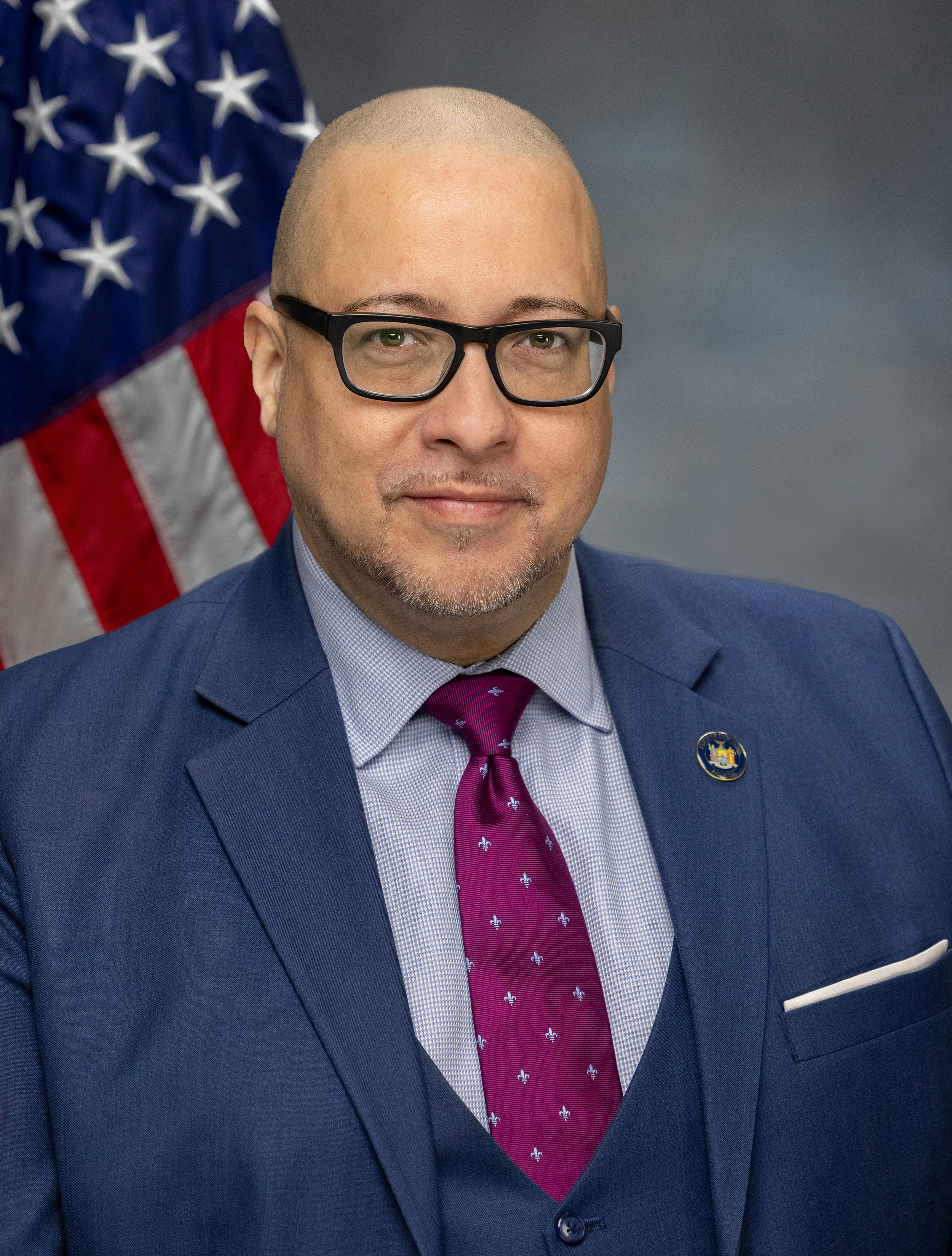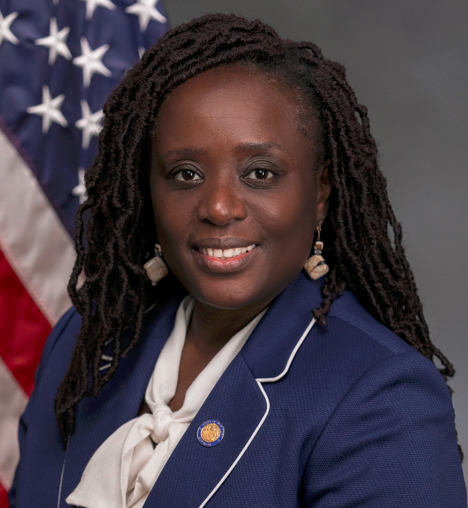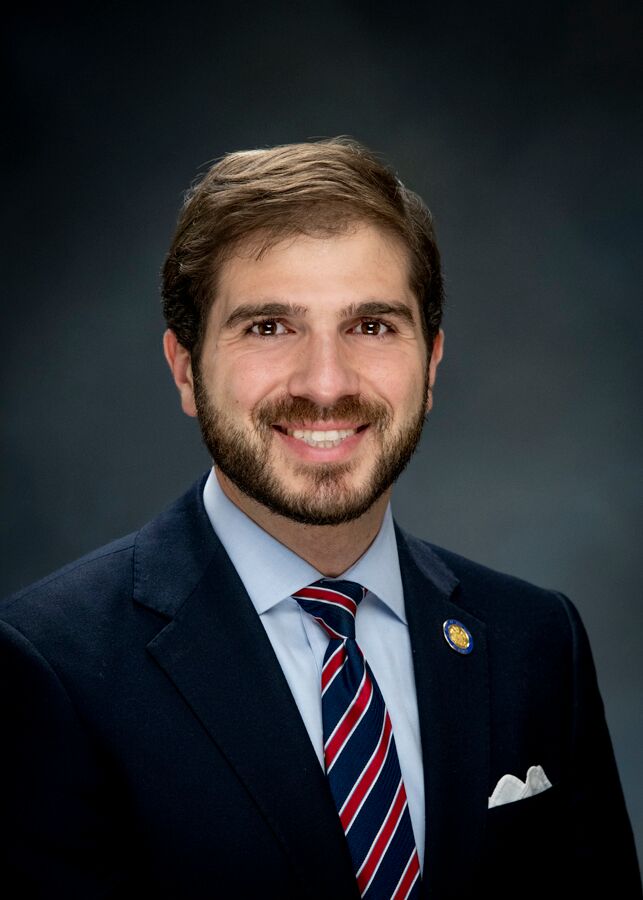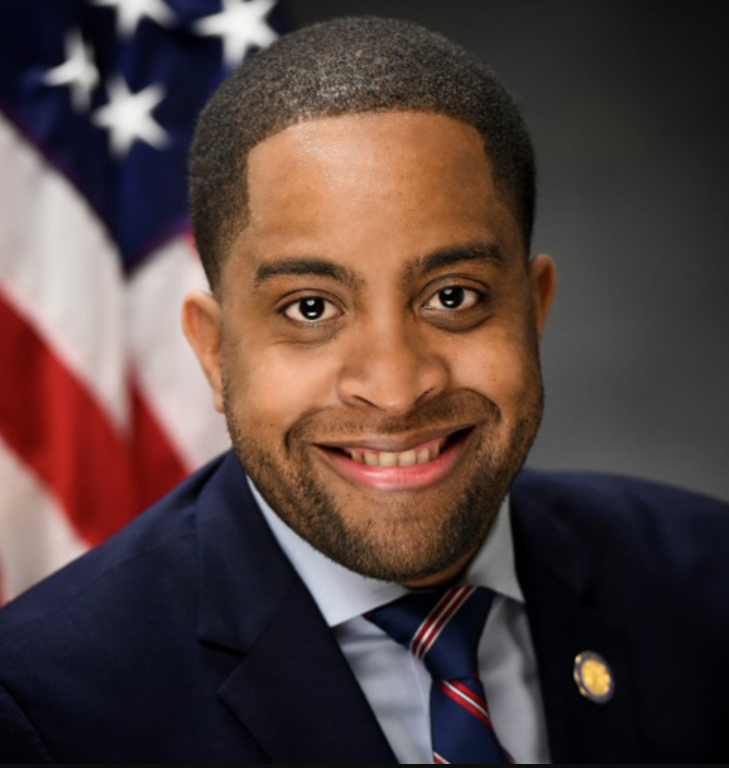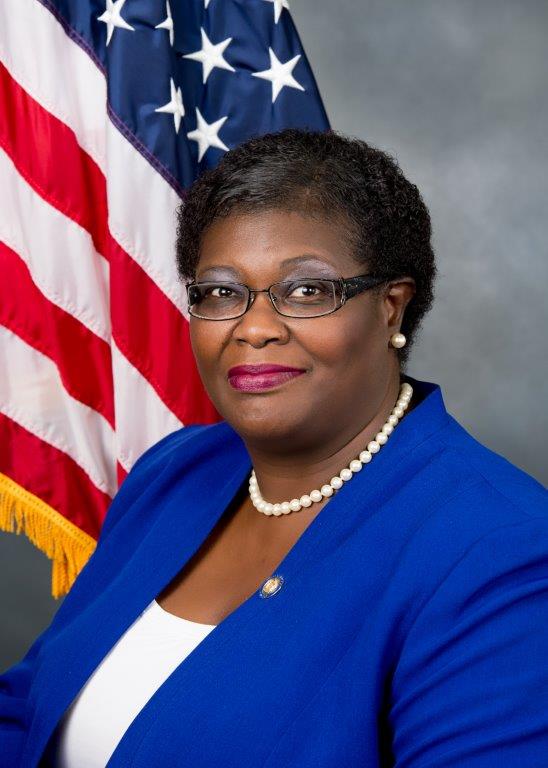S. 7625 2
strate an inability to pay such amounts. IMMIGRATION STATUS SHALL NOT BE
AN ELIGIBILITY CRITERION FOR THE PURPOSE OF DETERMINING FINANCIAL
ASSISTANCE UNDER THIS SECTION.
(II) A GENERAL HOSPITAL MAY USE THE NEW YORK STATE OF HEALTH MARKET-
PLACE ELIGIBILITY DETERMINATION PAGE TO ESTABLISH THE PATIENT'S HOUSE-
HOLD INCOME AND RESIDENCY IN LIEU OF THE FINANCIAL APPLICATION FORM,
PROVIDED IT HAS SECURED THE CONSENT OF THE PATIENT. A GENERAL HOSPITAL
SHALL NOT REQUIRE A PATIENT TO APPLY FOR COVERAGE THROUGH THE NEW YORK
STATE OF HEALTH MARKETPLACE IN ORDER TO RECEIVE CARE OR FINANCIAL
ASSISTANCE.
(III) UPON SUBMISSION OF A COMPLETED APPLICATION FORM, THE PATIENT IS
NOT LIABLE FOR ANY BILLS UNTIL THE GENERAL HOSPITAL HAS RENDERED A DECI-
SION ON THE APPLICATION IN ACCORDANCE WITH THIS SUBDIVISION.
(b) [Such] THE reductions from charges for [uninsured] patients
DESCRIBED IN PARAGRAPH (A) OF THIS SUBDIVISION with incomes below [at
least three] SIX hundred percent of the federal poverty level shall
result in a charge to such individuals that does not exceed [the greater
of] the amount that would have been paid for the same services [by the
"highest volume payor" for such general hospital as defined in subpara-
graph (v) of this paragraph, or for services provided pursuant to title
XVIII of the federal social security act (medicare), or for services]
provided pursuant to title [XIX] XVIII of the federal social security
act [(medicaid)] (MEDICARE), and provided further that such [amounts]
AMOUNT shall be adjusted according to income level as follows:
(i) For patients with incomes at or below [at least one] TWO hundred
percent of the federal poverty level, the hospital shall collect no more
than a nominal payment amount, consistent with guidelines established by
the commissioner[;].
(ii) For patients with incomes [between at least one] ABOVE TWO
hundred [one] percent and [one] UP TO FOUR hundred [fifty] percent of
the federal poverty level, the hospital shall collect no more than the
amount identified after application of a proportional sliding fee sched-
ule under which patients with lower incomes shall pay the lowest amount.
[Such] THE schedule shall provide that the amount the hospital may
collect for [such patients] THE PATIENT increases from the nominal
amount described in subparagraph (i) of this paragraph in equal incre-
ments as the income of the patient increases, up to a maximum of twenty
percent of the [greater of the] amount that would have been paid for the
same services [by the "highest volume payor" for such general hospital,
as defined in subparagraph (v) of this paragraph, or for services
provided pursuant to title XVIII of the federal social security act
(medicare) or for services] provided pursuant to title [XIX] XVIII of
the federal social security act [(medicaid);] (MEDICARE).
(iii) [For patients with incomes between at least one hundred fifty-
one percent and two hundred fifty percent of the federal poverty level,
the hospital shall collect no more than the amount identified after
application of a proportional sliding fee schedule under which patients
with lower income shall pay the lowest amounts. Such schedule shall
provide that the amount the hospital may collect for such patients
increases from the twenty percent figure described in subparagraph (ii)
of this paragraph in equal increments as the income of the patient
increases, up to a maximum of the greater of the amount that would have
been paid for the same services by the "highest volume payor" for such
general hospital, as defined in subparagraph (v) of this paragraph, or
for services provided pursuant to title XVIII of the federal social
S. 7625 3
security act (medicare) or for services provided pursuant to title XIX
of the federal social security act (medicaid); and
(iv)] For patients with incomes [between at least two hundred fifty-
one percent and three hundred] ABOVE FOUR HUNDRED PERCENT AND UP TO SIX
HUNDRED percent of the federal poverty level, the hospital shall collect
no more than the [greater of the] amount that would have been paid for
the same services [by the "highest volume payor" for such general hospi-
tal as defined in subparagraph (v) of this paragraph, or for services
provided pursuant to title XVIII of the federal social security act
(medicare), or for services] provided pursuant to title [XIX] XVIII of
the federal social security act [(medicaid)] (MEDICARE).
[(v) For the purposes of this paragraph, "highest volume payor" shall
mean the insurer, corporation or organization licensed, organized or
certified pursuant to article thirty-two, forty-two or forty-three of
the insurance law or article forty-four of this chapter, or other third-
party payor, which has a contract or agreement to pay claims for
services provided by the general hospital and incurred the highest
volume of claims in the previous calendar year.
(vi) A hospital may implement policies and procedures to permit, but
not require, consideration on a case-by-case basis of exceptions to the
requirements described in subparagraphs (i) and (ii) of this paragraph
based upon the existence of significant assets owned by the patient that
should be taken into account in determining the appropriate payment
amount for that patient's care, provided, however, that such proposed
policies and procedures shall be subject to the prior review and
approval of the commissioner and, if approved, shall be included in the
hospital's financial assistance policy established pursuant to this
section, and provided further that, if such approval is granted, the
maximum amount that may be collected shall not exceed the greater of the
amount that would have been paid for the same services by the "highest
volume payor" for such general hospital as defined in subparagraph (v)
of this paragraph, or for services provided pursuant to title XVIII of
the federal social security act (medicare), or for services provided
pursuant to title XIX of the federal social security act (medicaid). In
the event that a general hospital reviews a patient's assets in deter-
mining payment adjustments such policies and procedures shall not
consider as assets a patient's primary residence, assets held in a tax-
deferred or comparable retirement savings account, college savings
accounts, or cars used regularly by a patient or immediate family
members.
(vii)] (C) Nothing in this [paragraph] SUBDIVISION shall be construed
to limit a hospital's ability to establish patient eligibility for
payment discounts at income levels higher than those specified herein
and/or to provide greater payment discounts for eligible patients than
those required by this [paragraph] SUBDIVISION.
[(c)] (D) Such policies and procedures shall be clear, understandable,
in writing and publicly available in summary form and each general
hospital participating in the pool shall ensure that every patient is
made aware of the existence of [such] THE policies and procedures and is
provided, in a timely manner, with a summary AND A COPY of [such poli-
cies and procedures] THE POLICY AND FORM upon request. Any summary
provided to patients shall, at a minimum, include specific information
as to income levels used to determine eligibility for assistance, a
description of the primary service area of the hospital and the means of
applying for assistance. [For general hospitals with twenty-four hour
emergency departments, such policies and procedures] A GENERAL HOSPITAL
S. 7625 4
shall [require the notification of patients] NOTIFY PATIENTS BY PROVID-
ING WRITTEN MATERIALS TO PATIENTS OR THEIR AUTHORIZED REPRESENTATIVES
during the intake and registration process, through the conspicuous
posting of language-appropriate information in the general hospital, and
BY INCLUDING information on bills and statements sent to patients, that
financial [aid] ASSISTANCE may be available to qualified patients and
how to obtain further information. [For specialty hospitals without
twenty-four hour emergency departments, such notification shall take
place through written materials provided to patients during the intake
and registration process prior to the provision of any health care
services or procedures, and through information on bills and statements
sent to patients, that financial aid may be available to qualified
patients and how to obtain further information. Application materials
shall include a notice to patients that upon submission of a completed
application, including any information or documentation needed to deter-
mine the patient's eligibility pursuant to the hospital's financial
assistance policy, the patient may disregard any bills until the hospi-
tal has rendered a decision on the application in accordance with this
paragraph] GENERAL HOSPITALS SHALL POST THE FINANCIAL ASSISTANCE APPLI-
CATION POLICY, PROCEDURES AND FORM, AND A SUMMARY OF THE POLICY AND
PROCEDURES, IN A CONSPICUOUS LOCATION AND DOWNLOADABLE FORM ON THE
GENERAL HOSPITAL'S WEBSITE.
[(d) Such] (E) THE HOSPITAL'S APPLICATION MATERIALS SHALL INCLUDE A
NOTICE TO PATIENTS THAT UPON SUBMISSION OF A COMPLETED APPLICATION FORM,
THE PATIENT SHALL NOT BE LIABLE FOR ANY BILLS UNTIL THE GENERAL HOSPITAL
HAS RENDERED A DECISION ON THE APPLICATION IN ACCORDANCE WITH THIS
SUBDIVISION. THE APPLICATION MATERIALS SHALL INCLUDE SPECIFIC INFORMA-
TION AS THE INCOME LEVELS USED TO DETERMINE ELIGIBILITY FOR FINANCIAL
ASSISTANCE, A DESCRIPTION OF THE PRIMARY SERVICE AREA OF THE HOSPITAL
AND THE MEANS TO APPLY FOR ASSISTANCE. NOTHING IN THIS SUBDIVISION SHALL
BE CONSTRUED AS PRECLUDING THE USE OF PRESUMPTIVE ELIGIBILITY DETERMI-
NATIONS BY HOSPITALS ON BEHALF OF PATIENTS. THE policies and procedures
shall include clear, objective criteria for determining a patient's
ability to pay and for providing such adjustments to payment require-
ments as are necessary. In addition to adjustment mechanisms such as
sliding fee schedules and discounts to fixed standards, such policies
and procedures shall also provide for the use of installment plans for
the payment of outstanding balances by patients pursuant to the
provisions of the hospital's financial assistance policy. The monthly
payment under such a plan shall not exceed [ten] FIVE percent of the
gross monthly income of the patient[, provided, however, that if patient
assets are considered under such a policy, then patient assets which are
not excluded assets pursuant to subparagraph (vi) of paragraph (b) of
this subdivision may be considered in addition to the limit on monthly
payments]. INSTALLMENT PLAN PAYMENTS MAY NOT BE REQUIRED TO BEGIN BEFORE
ONE HUNDRED EIGHTY DAYS AFTER THE DATE OF THE SERVICE OR DISCHARGE,
WHICHEVER IS LATER. THE POLICY SHALL ALLOW THE PATIENT AND THE HOSPITAL
TO MUTUALLY AGREE TO MODIFY THE TERMS OF AN INSTALLMENT PLAN. The rate
of interest charged to the patient on the unpaid balance, if any, shall
not exceed [the rate for a ninety-day security issued by the United
States Department of Treasury, plus .5 percent] TWO PERCENTUM PER ANNUM
and no plan shall include an accelerator or similar clause under which a
higher rate of interest is triggered upon a missed payment. [If such]
THE policies and procedures SHALL NOT include a requirement of a deposit
prior to [non-emergent,] medically-necessary care[, such deposit must be
included as part of any financial aid consideration]. THE HOSPITAL
S. 7625 5
SHALL REFUND ANY PAYMENTS MADE BY THE PATIENT BEFORE THE DETERMINATION
OF ELIGIBILITY FOR FINANCIAL ASSISTANCE THAT EXCEEDS THE PATIENT'S
LIABILITY AFTER DISCOUNTS ARE APPLIED. Such policies and procedures
shall be applied consistently to all eligible patients.
[(e) Such policies and procedures shall permit patients to] (F) IN ANY
LEGAL ACTION BY OR ON BEHALF OF A HOSPITAL TO COLLECT A MEDICAL DEBT,
THE COMPLAINT SHALL BE ACCOMPANIED BY AN AFFIDAVIT BY THE HOSPITAL'S
CHIEF FINANCIAL OFFICER STATING THAT ON INFORMATION AND BELIEF THE
PATIENT DOES NOT MEET THE INCOME OR RESIDENCY CRITERIA FOR FINANCIAL
ASSISTANCE. PATIENTS MAY apply for FINANCIAL assistance [within at least
ninety days of the date of discharge or date of service and provide at
least twenty days for patients to submit a completed application] AT ANY
TIME DURING THE COLLECTION PROCESS, INCLUDING AFTER THE COMMENCEMENT OF
A MEDICAL DEBT COURT ACTION OR UPON THE PLAINTIFF OBTAINING A DEFAULT
JUDGMENT. A HOSPITAL MAY USE CREDIT SCORING SOFTWARE FOR THE PURPOSES OF
ESTABLISHING INCOME ELIGIBILITY AND APPROVING FINANCIAL ASSISTANCE, BUT
ONLY IF THE HOSPITAL MAKES CLEAR TO THE PATIENT THAT PROVIDING A SOCIAL
SECURITY NUMBER IS NOT MANDATORY AND THE SCORING DOES NOT NEGATIVELY
IMPACT THE PATIENT'S CREDIT SCORE. HOWEVER, CREDIT SCORING SOFTWARE
SHALL NOT BE SOLELY RELIED UPON BY THE HOSPITAL IN DENYING A PATIENT'S
APPLICATION FOR FINANCIAL ASSISTANCE. [Such] THE policies and proce-
dures [may require that] SHALL ALLOW patients seeking [payment adjust-
ments] FINANCIAL ASSISTANCE TO provide [appropriate] THE FOLLOWING
financial information and documentation in support of their applica-
tion[, provided, however, that such application process shall not be
unduly burdensome or complex]: PAY CHECKS OR PAY STUBS; UNEMPLOYMENT
DOCUMENTATION; SOCIAL SECURITY INCOME; RENT RECEIPTS; A LETTER FROM THE
PATIENT'S EMPLOYER ATTESTING TO THE PATIENT'S GROSS INCOME; OR, IF NONE
OF THE AFOREMENTIONED INFORMATION AND DOCUMENTATION ARE AVAILABLE, A
WRITTEN SELF-ATTESTATION OF THE PATIENT'S INCOME MAY BE USED. General
hospitals shall, upon request, assist patients in understanding the
hospital's APPLICATION AND FORM, policies and procedures and in applying
for payment adjustments. Application forms shall be printed AND POSTED
TO ITS WEBSITE in the "primary languages" of patients served by the
general hospital. For the purposes of this paragraph, "primary
languages" shall include any language that is either (i) used to commu-
nicate, during at least five percent of patient visits in a year, by
patients who cannot speak, read, write or understand the English
language at the level of proficiency necessary for effective communi-
cation with health care providers, or (ii) spoken by non-English speak-
ing individuals comprising more than one percent of the primary hospital
service area population, as calculated using demographic information
available from the United States Bureau of the Census, supplemented by
data from school systems. Decisions regarding such applications shall be
made within thirty days of receipt of a completed application. [Such]
THE policies and procedures shall require that the hospital issue any
[denial/approval] DENIAL OR APPROVAL of [such] THE application in writ-
ing with information on how to appeal the denial and shall require the
hospital to establish an appeals process under which it will evaluate
the denial of an application. [Nothing in this subdivision shall be
interpreted as prohibiting a hospital from making the availability of
financial assistance contingent upon the patient first applying for
coverage under title XIX of the social security act (medicaid) or anoth-
er insurance program if, in the judgment of the hospital, the patient
may be eligible for medicaid or another insurance program, and upon the
patient's cooperation in following the hospital's financial assistance
S. 7625 6
application requirements, including the provision of information needed
to make a determination on the patient's application in accordance with
the hospital's financial assistance policy] THE HOSPITAL SHALL INFORM
PATIENTS ON HOW TO FILE A COMPLAINT AGAINST THE HOSPITAL OR A DEBT
COLLECTOR THAT IS CONTRACTED ON BEHALF OF THE HOSPITAL REGARDING THE
PATIENT'S BILL.
[(f) Such] (G) THE policies and procedures shall provide that patients
with incomes below [three] SIX hundred percent of the federal poverty
level are deemed [presumptively] eligible for payment adjustments and
shall conform to the requirements set forth in paragraph (b) of this
subdivision, provided, however, that nothing in this subdivision shall
be interpreted as precluding hospitals from extending such payment
adjustments to other patients, either generally or on a case-by-case
basis. [Such] THE policies and procedures shall provide financial [aid]
ASSISTANCE for emergency hospital services, including emergency trans-
fers pursuant to the federal emergency medical treatment and active
labor act (42 USC 1395dd), to patients who reside in New York state and
for medically necessary hospital services for patients who reside in the
hospital's primary service area as determined according to criteria
established by the commissioner. In developing [such] THE criteria, the
commissioner shall consult with representatives of the hospital indus-
try, health care consumer advocates and local public health officials.
[Such] THE criteria shall be made available to the public no less than
thirty days prior to the date of implementation and shall, at a minimum:
(i) prohibit a hospital from developing or altering its primary
service area in a manner designed to avoid medically underserved commu-
nities or communities with high percentages of uninsured residents;
(ii) ensure that every geographic area of the state is included in at
least one general hospital's primary service area so that eligible
patients may access care and financial assistance; and
(iii) require the hospital to notify the commissioner upon making any
change to its primary service area, and to include a description of its
primary service area in the hospital's annual implementation report
filed pursuant to subdivision three of section twenty-eight hundred
three-l of this article.
[(g)] (H) Nothing in this subdivision shall be interpreted as preclud-
ing hospitals from extending payment adjustments for medically necessary
non-emergency hospital services to patients outside of the hospital's
primary service area. For patients determined to be eligible for finan-
cial [aid] ASSISTANCE under the terms of a hospital's financial [aid]
ASSISTANCE policy, [such] THE policies and procedures shall prohibit any
limitations on financial [aid] ASSISTANCE for services based on the
medical condition of the applicant, other than typical limitations or
exclusions based on medical necessity or the clinical or therapeutic
benefit of a procedure or treatment.
[(h) Such policies and procedures shall not permit the forced] (I) A
HOSPITAL OR ITS AGENT SHALL NOT ISSUE, AUTHORIZE OR PERMIT AN INCOME
EXECUTION OF A PATIENT'S WAGES, SECURE A LIEN OR FORCE A sale or fore-
closure of a patient's primary residence in order to collect an
outstanding medical bill and shall [require the hospital to refrain from
sending] NOT SEND an account to collection if the patient has submitted
a completed application for financial [aid, including any required
supporting documentation] ASSISTANCE, while the hospital determines the
patient's eligibility for [such aid] FINANCIAL ASSISTANCE. [Such] THE
policies and procedures shall provide for written notification, which
shall include notification on a patient bill, to a patient not less than
S. 7625 7
thirty days prior to the referral of debts for collection and shall
require that the collection agency obtain the hospital's written consent
prior to commencing a legal action. [Such] THE policies and procedures
shall require all general hospital staff who interact with patients or
have responsibility for billing and collections to be trained in [such]
THE policies and procedures, and require the implementation of a mech-
anism for the general hospital to measure its compliance with [such] THE
policies and procedures. [Such] THE policies and procedures shall
require that any collection agency, LAWYER OR FIRM under contract with a
general hospital for the collection of debts follow the hospital's
financial assistance policy, including providing information to patients
on how to apply for financial assistance where appropriate. [Such] THE
policies and procedures shall prohibit collections from a patient who is
determined to be eligible for medical assistance [pursuant to title XIX
of the federal social security act] UNDER TITLE ELEVEN OF ARTICLE FIVE
OF THE SOCIAL SERVICES LAW at the time services were rendered and for
which services medicaid payment is available.
[(i)] (J) Reports required to be submitted to the department by each
general hospital as a condition for participation in the pools[, and
which contain, in accordance with applicable regulations,] SHALL
CONTAIN: (I) a certification from an independent certified public
accountant or independent licensed public accountant or an attestation
from a senior official of the hospital that the hospital is in compli-
ance with conditions of participation in the pools[, shall also contain,
for reporting periods on and after January first, two thousand seven:];
[(i)] (II) a report on hospital costs incurred and uncollected amounts
in providing services to [eligible] patients [without insurance] FOUND
ELIGIBLE FOR FINANCIAL ASSISTANCE, including the amount of care provided
for a nominal payment amount, during the period covered by the report;
[(ii)] (III) hospital costs incurred and uncollected amounts for
deductibles and coinsurance for eligible patients with insurance or
other third-party payor coverage;
[(iii)] (IV) the number of patients, organized according to United
States postal service zip code, RACE, ETHNICITY AND GENDER, who applied
for financial assistance [pursuant to] UNDER the hospital's financial
assistance policy, and the number, organized according to United States
postal service zip code, RACE, ETHNICITY AND GENDER, whose applications
were approved and whose applications were denied;
[(iv)] (V) the reimbursement received for indigent care from the pool
established [pursuant to] UNDER this section;
[(v)] (VI) the amount of funds that have been expended on [charity
care] FINANCIAL ASSISTANCE from charitable bequests made or trusts
established for the purpose of providing financial assistance to
patients who are eligible in accordance with the terms of [such] THE
bequests or trusts;
[(vi)] (VII) for hospitals located in social services districts in
which the district allows hospitals to assist patients with such appli-
cations, the number of applications for eligibility FOR MEDICAID under
title [XIX of the social security act (medicaid)] ELEVEN OF ARTICLE FIVE
OF THE SOCIAL SERVICES LAW that the hospital assisted patients in
completing and the number denied and approved;
[(vii)] (VIII) the hospital's financial losses resulting from services
provided under medicaid; and
[(viii)] (IX) the number of REFERRALS TO COLLECTION AGENTS OR
CONTRACTED EXTERNAL COLLECTION VENDORS, COURT CASES AND liens placed on
S. 7625 8
[the primary] ANY residences of patients through the collection process
used by a hospital.
[(j)] (K) Within ninety days of the effective date of THE CHAPTER OF
THE LAWS OF TWO THOUSAND TWENTY-TWO WHICH AMENDED this subdivision each
hospital shall submit to the commissioner a written report on its poli-
cies and procedures for financial assistance to patients which are used
by the hospital [on the] AS OF SUCH effective date [of this subdivi-
sion]. Such report shall include copies of its policies and procedures,
including material which is distributed to patients, and a description
of the hospital's financial aid policies and procedures. Such
description shall include the income levels of patients on which eligi-
bility is based, the financial aid eligible patients receive and the
means of calculating such aid, and the service area, if any, used by the
hospital to determine eligibility.
[(k)] (L) THE COMMISSIONER SHALL INCLUDE THE DATA COLLECTED UNDER
PARAGRAPH (J) OF THIS SUBDIVISION IN REGULAR AUDITS OF THE ANNUAL GENER-
AL HOSPITAL INSTITUTIONAL COST REPORT.
(M) In the event [it is determined by the commissioner that] the state
[will be] IS unable to secure all necessary federal approvals to
include, as part of the state's approved state plan under title nineteen
of the federal social security act, a requirement[, as set forth in
paragraph one of this subdivision,] that compliance with this subdivi-
sion is a condition of participation in pool distributions authorized
pursuant to this section and section twenty-eight hundred seven-w of
this article, then such condition of participation shall be deemed null
and void [and, notwithstanding]. NOTWITHSTANDING section twelve of this
chapter, failure to comply with [the provisions of] this subdivision by
a GENERAL hospital [on and after the date of such determination] shall
make [such] THE hospital liable for a civil penalty not to exceed ten
thousand dollars for each [such] violation. The imposition of [such] THE
civil penalties shall be subject to [the provisions of] section twelve-a
of this chapter.
(N) A HOSPITAL OR ITS COLLECTION AGENTS SHALL NOT REPORT ADVERSE
INFORMATION ABOUT A PATIENT TO A CONSUMER OR FINANCIAL REPORTING ENTITY,
OR COMMENCE CIVIL ACTION AGAINST A PATIENT OR DELEGATE A COLLECTION
ACTIVITY TO A DEBT COLLECTOR FOR NONPAYMENT FOR ONE HUNDRED EIGHTY DAYS
AFTER THE FIRST POST-SERVICE BILL IS ISSUED; AND A HOSPITAL SHALL NOT
REPORT ADVERSE INFORMATION TO A CONSUMER REPORTING AGENCY, OR COMMENCE A
CIVIL ACTION AGAINST A PATIENT OR DELEGATE A COLLECTION ACTIVITY TO A
DEBT COLLECTOR, IF: THE HOSPITAL WAS NOTIFIED THAT AN APPEAL OR A REVIEW
OF A HEALTH INSURANCE DECISION IS PENDING WITHIN THE IMMEDIATELY PRECED-
ING SIXTY DAYS; OR THE PATIENT HAS A PENDING APPLICATION FOR OR QUALI-
FIED FOR FINANCIAL ASSISTANCE. A HOSPITAL SHALL REPORT THE FULFILLMENT
OF A PATIENT'S PAYMENT OBLIGATION WITHIN THIRTY DAYS AFTER THE OBLI-
GATION IS FULFILLED TO A CONSUMER OR FINANCIAL REPORTING ENTITY TO WHICH
THE HOSPITAL HAD REPORTED ADVERSE INFORMATION ABOUT THE PATIENT.
§ 3. Subdivision 9-a of section 2807-k of the public health law as
amended by section two of this act, is amended to read as follows:
9-a. (a) (i) As a condition for participation in pool distributions
authorized pursuant to this section and section twenty-eight hundred
seven-w of this article for periods on and after January first, two
thousand nine, general hospitals shall, effective for periods on and
after January first, two thousand [seven, establish] TWENTY-FOUR, ADOPT
AND IMPLEMENT THE UNIFORM financial assistance [policies and procedures,
in accordance with the provisions of this subdivision,] FORM AND POLICY,
TO BE DEVELOPED AND ISSUED BY THE COMMISSIONER. GENERAL HOSPITALS SHALL
S. 7625 9
IMPLEMENT THE UNIFORM POLICY AND FORM for reducing hospital charges AND
CHARGES FOR AFFILIATED PROVIDERS otherwise applicable to low-income
individuals without third-party health coverage, or who have third-party
health coverage that does not cover or limits coverage of the service,
and who can demonstrate an inability to pay full charges, and also, at
the hospital's discretion, for reducing or discounting the collection of
co-pays and deductible payments from those individuals who can demon-
strate an inability to pay such amounts. Immigration status shall not be
an eligibility criterion for the purpose of determining financial
assistance under this section. AS USED IN THIS SECTION, "AFFILIATED
PROVIDER" MEANS A PROVIDER THAT IS: (A) EMPLOYED BY THE HOSPITAL; (B)
UNDER A PROFESSIONAL SERVICES AGREEMENT WITH THE HOSPITAL; OR (C) A
CLINICAL FACULTY MEMBER OF A MEDICAL SCHOOL OR OTHER SCHOOL THAT TRAINS
INDIVIDUALS TO BE PROVIDERS AND THAT IS AFFILIATED WITH THE HOSPITAL OR
HEALTH SYSTEM.
(ii) A general hospital may use the New York state of health market-
place eligibility determination page to establish the patient's house-
hold income and residency in lieu of the financial application form,
provided it has secured the consent of the patient. A general hospital
shall not require a patient to apply for coverage through the New York
state of health marketplace in order to receive care or financial
assistance.
(iii) Upon submission of a completed application form, the patient is
not liable for any bills until the general hospital has rendered a deci-
sion on the application in accordance with this subdivision.
(b) The reductions from charges for patients described in paragraph
(a) of this subdivision with incomes below six hundred percent of the
federal poverty level shall result in a charge to such individuals that
does not exceed the amount that would have been paid for the same
services provided pursuant to title XVIII of the federal social security
act (medicare), and provided further that such amount shall be adjusted
according to income level as follows:
(i) For patients with incomes at or below two hundred percent of the
federal poverty level, the hospital shall collect no more than a nominal
payment amount, consistent with guidelines established by the commis-
sioner.
(ii) For patients with incomes above two hundred percent and up to
four hundred percent of the federal poverty level, the hospital shall
collect no more than the amount identified after application of a
proportional sliding fee schedule under which patients with lower
incomes shall pay the lowest amount. The schedule shall provide that the
amount the hospital may collect for the patient increases from the nomi-
nal amount described in subparagraph (i) of this paragraph in equal
increments as the income of the patient increases, up to a maximum of
twenty percent of the amount that would have been paid for the same
services provided pursuant to title XVIII of the federal social security
act (medicare).
(iii) For patients with incomes above four hundred percent and up to
six hundred percent of the federal poverty level, the hospital shall
collect no more than the amount that would have been paid for the same
services provided pursuant to title XVIII of the federal social security
act (medicare).
(c) Nothing in this subdivision shall be construed to limit a hospi-
tal's ability to establish patient eligibility for payment discounts at
income levels higher than those specified herein and/or to provide
S. 7625 10
greater payment discounts for eligible patients than those required by
this subdivision.
(d) [Such policies and procedures shall be clear, understandable, in
writing and publicly available in summary form and each] EACH general
hospital participating in the pool shall ensure that every patient is
made aware of the existence of [the policies and procedures] THE UNIFORM
FINANCIAL ASSISTANCE FORM AND POLICY and is provided, in a timely
manner, with [a summary and] a copy of the policy and form upon request.
[Any summary provided to patients shall, at a minimum, include specific
information as to income levels used to determine eligibility for
assistance, a description of the primary service area of the hospital
and the means of applying for assistance.] A general hospital shall
notify patients by providing written materials to patients or their
authorized representatives during the intake and registration process,
through the conspicuous posting of language-appropriate information in
the general hospital, and by including information on bills and state-
ments sent to patients, that financial assistance may be available to
qualified patients and how to obtain further information. General hospi-
tals shall post the UNIFORM financial assistance application policy[,
procedures] and form, and a summary of the policy [and procedures], in a
conspicuous location and downloadable form on the general hospital's
website. THE COMMISSIONER SHALL POST THE UNIFORM FINANCIAL ASSISTANCE
FORM AND POLICY IN DOWNLOADABLE FORM ON THE DEPARTMENT'S HOSPITAL
PROFILE PAGE OR ANY SUCCESSOR WEBSITE.
(e) The [hospital's] COMMISSIONER SHALL PROVIDE APPLICATION MATERIALS
TO GENERAL HOSPITALS, INCLUDING THE UNIFORM FINANCIAL ASSISTANCE APPLI-
CATION FORM AND POLICY. THESE application materials shall include a
notice to patients that upon submission of a completed application form,
the patient shall not be liable for any bills until the general hospital
has rendered a decision on the application in accordance with this
subdivision. The application materials shall include specific informa-
tion as the income levels used to determine eligibility for financial
assistance, a description of the primary service area of the hospital
and the means to apply for assistance. Nothing in this subdivision shall
be construed as precluding the use of presumptive eligibility determi-
nations by hospitals on behalf of patients. The [policies and proce-
dures] UNIFORM APPLICATION FORM AND POLICY shall include clear, objec-
tive criteria for determining a patient's ability to pay and for
providing such adjustments to payment requirements as are necessary. In
addition to adjustment mechanisms such as sliding fee schedules and
discounts to fixed standards, [such policies and procedures] THE UNIFORM
POLICY shall also provide for the use of installment plans for the
payment of outstanding balances by patients [pursuant to the provisions
of the hospital's financial assistance policy]. The monthly payment
under such a plan shall not exceed five percent of the gross monthly
income of the patient. Installment plan payments may not be required to
begin before one hundred eighty days after the date of the service or
discharge, whichever is later. The policy shall allow the patient and
the hospital to mutually agree to modify the terms of an installment
plan. The rate of interest charged to the patient on the unpaid
balance, if any, shall not exceed two percentum per annum and no plan
shall include an accelerator or similar clause under which a higher rate
of interest is triggered upon a missed payment. The [policies and proce-
dures] UNIFORM POLICY shall not include a requirement of a deposit prior
to medically-necessary care. The hospital shall refund any payments made
by the patient before the determination of eligibility for financial
S. 7625 11
assistance that exceeds the patient's liability after discounts are
applied. Such policies and procedures shall be applied consistently to
all eligible patients.
(f) In any legal action by or on behalf of a hospital to collect a
medical debt, the complaint shall be accompanied by an affidavit by the
hospital's chief financial officer stating that on information and
belief the patient does not meet the income or residency criteria for
financial assistance. Patients may apply for financial assistance at any
time during the collection process, including after the commencement of
a medical debt court action or upon the plaintiff obtaining a default
judgment. A hospital may use credit scoring software for the purposes of
establishing income eligibility and approving financial assistance, but
only if the hospital makes clear to the patient that providing a social
security number is not mandatory and the scoring does not negatively
impact the patient's credit score. However, credit scoring software
shall not be solely relied upon by the hospital in denying a patient's
application for financial assistance. The [policies and procedures]
UNIFORM POLICY AND FORM shall allow patients seeking financial assist-
ance to provide the following financial information and documentation in
support of their application: pay checks or pay stubs; unemployment
documentation; social security income; rent receipts; a letter from the
patient's employer attesting to the patient's gross income; or, if none
of the aforementioned information and documentation are available, a
written self-attestation of the patient's income may be used. General
hospitals shall, upon request, assist patients in understanding the
[hospital's application and form, policies and procedures] UNIFORM
FINANCIAL ASSISTANCE APPLICATION FORM AND POLICY and in applying for
payment adjustments. [Application forms shall be printed and posted] THE
COMMISSIONER SHALL TRANSLATE THE UNIFORM FINANCIAL ASSISTANCE APPLICA-
TION FORM AND POLICY INTO THE "PRIMARY LANGUAGES" OF EACH GENERAL HOSPI-
TAL. EACH GENERAL HOSPITAL SHALL PRINT AND POST THESE MATERIALS to its
website in the "primary languages" of patients served by the general
hospital. For the purposes of this paragraph, "primary languages" shall
include any language that is either (i) used to communicate, during at
least five percent of patient visits in a year, by patients who cannot
speak, read, write or understand the English language at the level of
proficiency necessary for effective communication with health care
providers, or (ii) spoken by non-English speaking individuals comprising
more than one percent of the primary hospital service area population,
as calculated using demographic information available from the United
States Bureau of the Census, supplemented by data from school systems.
Decisions regarding such applications shall be made within thirty days
of receipt of a completed application. The [policies and procedures]
UNIFORM FINANCIAL ASSISTANCE POLICY shall require that the hospital
issue any denial or approval of the application in writing with informa-
tion on how to appeal the denial and shall require the hospital to
establish an appeals process under which it will evaluate the denial of
an application. The hospital shall inform patients on how to file a
complaint against the hospital or a debt collector that is contracted on
behalf of the hospital regarding the patient's bill.
(g) The [policies and procedures] UNIFORM FINANCIAL ASSISTANCE POLICY
shall provide that patients with incomes below six hundred percent of
the federal poverty level are deemed eligible for payment adjustments
and shall conform to the requirements set forth in paragraph (b) of this
subdivision, provided, however, that nothing in this subdivision shall
be interpreted as precluding hospitals from extending such payment
S. 7625 12
adjustments to other patients, either generally or on a case-by-case
basis. The [policies and procedures] UNIFORM POLICY shall provide finan-
cial assistance for emergency hospital services, including emergency
transfers pursuant to the federal emergency medical treatment and active
labor act (42 USC 1395dd), to patients who reside in New York state and
for medically necessary hospital services for patients who reside in the
hospital's primary service area as determined according to criteria
established by the commissioner. In developing the criteria, the commis-
sioner shall consult with representatives of the hospital industry,
health care consumer advocates and local public health officials. The
criteria shall be made available to the public no less than thirty days
prior to the date of implementation and shall, at a minimum:
(i) prohibit a hospital from developing or altering its primary
service area in a manner designed to avoid medically underserved commu-
nities or communities with high percentages of uninsured residents;
(ii) ensure that every geographic area of the state is included in at
least one general hospital's primary service area so that eligible
patients may access care and financial assistance; and
(iii) require the hospital to notify the commissioner upon making any
change to its primary service area, and to include a description of its
primary service area in the hospital's annual implementation report
filed pursuant to subdivision three of section twenty-eight hundred
three-l of this article.
(h) Nothing in this subdivision shall be interpreted as precluding
hospitals from extending payment adjustments for medically necessary
non-emergency hospital services to patients outside of the hospital's
primary service area. For patients determined to be eligible for finan-
cial assistance under the terms of [a hospital's] THE UNIFORM financial
assistance policy, the [policies and procedures] FINANCIAL ASSISTANCE
POLICY shall prohibit any limitations on financial assistance for
services based on the medical condition of the applicant, other than
typical limitations or exclusions based on medical necessity or the
clinical or therapeutic benefit of a procedure or treatment.
(i) A hospital or its agent shall not issue, authorize or permit an
income execution of a patient's wages, secure a lien or force a sale or
foreclosure of a patient's primary residence in order to collect an
outstanding medical bill and shall not send an account to collection if
the patient has submitted a completed application for financial assist-
ance, while the hospital determines the patient's eligibility for finan-
cial assistance. The [policies and procedures] UNIFORM POLICY shall
provide for written notification, which shall include notification on a
patient bill, to a patient not less than thirty days prior to the refer-
ral of debts for collection and shall require that the collection agency
obtain the hospital's written consent prior to commencing a legal
action. The [policies and procedures] UNIFORM POLICY shall require all
general hospital staff who interact with patients or have responsibility
for billing and collections to be trained in the [policies and proce-
dures] POLICY, and require the implementation of a mechanism for the
general hospital to measure its compliance with the [policies and proce-
dures] POLICY. The [policies and procedures] UNIFORM POLICY shall
require that any collection agency, lawyer or firm under contract with a
general hospital for the collection of debts follow the [hospital's]
UNIFORM financial assistance policy, including providing information to
patients on how to apply for financial assistance where appropriate.
The [policies and procedures] UNIFORM POLICY shall prohibit collections
from a patient who is determined to be eligible for medical assistance
S. 7625 13
under title eleven of article five of the social services law at the
time services were rendered and for which services medicaid payment is
available.
(j) Reports required to be submitted to the department by each general
hospital as a condition for participation in the pools shall contain:
(i) a certification from an independent certified public accountant or
independent licensed public accountant or an attestation from a senior
official of the hospital that the hospital is in compliance with condi-
tions of participation in the pools;
(ii) a report on hospital costs incurred and uncollected amounts in
providing services to patients found eligible for financial assistance,
including the amount of care provided for a nominal payment amount,
during the period covered by the report;
(iii) hospital costs incurred and uncollected amounts for deductibles
and coinsurance for eligible patients with insurance or other third-par-
ty payor coverage;
(iv) the number of patients, organized according to United States
postal service zip code, race, ethnicity and gender, who applied for
financial assistance under the [hospital's] UNIFORM financial assistance
policy, and the number, organized according to United States postal
service zip code, race, ethnicity and gender, whose applications were
approved and whose applications were denied;
(v) the reimbursement received for indigent care from the pool estab-
lished under this section;
(vi) the amount of funds that have been expended on financial assist-
ance from charitable bequests made or trusts established for the purpose
of providing financial assistance to patients who are eligible in
accordance with the terms of the bequests or trusts;
(vii) for hospitals located in social services districts in which the
district allows hospitals to assist patients with such applications, the
number of applications for eligibility for medicaid under title eleven
of article five of the social services law that the hospital assisted
patients in completing and the number denied and approved;
(viii) the hospital's financial losses resulting from services
provided under medicaid; and
(ix) the number of referrals to collection agents or contracted
external collection vendors, court cases and liens placed on any resi-
dences of patients through the collection process used by a hospital.
(k) [Within ninety days of the effective date of the chapter of the
laws of two thousand twenty-two which amended this subdivision each
hospital shall submit to the commissioner a written report on its poli-
cies and procedures for financial assistance to patients which are used
by the hospital as of such effective date. Such report shall include
copies of its policies and procedures, including material which is
distributed to patients, and a description of the hospital's financial
aid policies and procedures. Such description shall include the income
levels of patients on which eligibility is based, the financial aid
eligible patients receive and the means of calculating such aid, and the
service area, if any, used by the hospital to determine eligibility.
(l)] The commissioner shall include the data collected under paragraph
(j) of this subdivision in regular audits of the annual general hospital
institutional cost report.
[(m)] (L) In the event the state is unable to secure all necessary
federal approvals to include, as part of the state's approved state plan
under title nineteen of the federal social security act, a requirement
that compliance with this subdivision is a condition of participation in
S. 7625 14
pool distributions authorized pursuant to this section and section twen-
ty-eight hundred seven-w of this article, then such condition of partic-
ipation shall be deemed null and void. Notwithstanding section twelve of
this chapter, failure to comply with this subdivision by a general
hospital shall make the hospital liable for a civil penalty not to
exceed ten thousand dollars for each violation. The imposition of the
civil penalties shall be subject to section twelve-a of this chapter.
[(n)] (M) A hospital or its collection agents shall not report adverse
information about a patient to a consumer or financial reporting entity,
or commence civil action against a patient or delegate a collection
activity to a debt collector for nonpayment for one hundred eighty days
after the first post-service bill is issued; and a hospital shall not
report adverse information to a consumer reporting agency, or commence a
civil action against a patient or delegate a collection activity to a
debt collector, if: the hospital was notified that an appeal or a review
of a health insurance decision is pending within the immediately preced-
ing sixty days; or the patient has a pending application for or quali-
fied for financial assistance. A hospital shall report the fulfillment
of a patient's payment obligation within thirty days after the obli-
gation is fulfilled to a consumer or financial reporting entity to which
the hospital had reported adverse information about the patient.
§ 4. Subdivision 14 of section 2807-k of the public health law is
REPEALED and subdivisions 15, 16 and 17 are renumbered subdivisions 14,
15 and 16.
§ 5. This act shall take effect immediately; provided that (a)
section two of this act shall take effect on the one hundred twentieth
day after it shall have become a law; and (b) sections one and three of
this act shall take effect October 1, 2023 and apply to funding distrib-
utions made on or after January 1, 2024. Effective immediately, the
commissioner of health may make regulations and take other actions
reasonably necessary to implement sections one, two and three of this
act on their respective effective dates.
